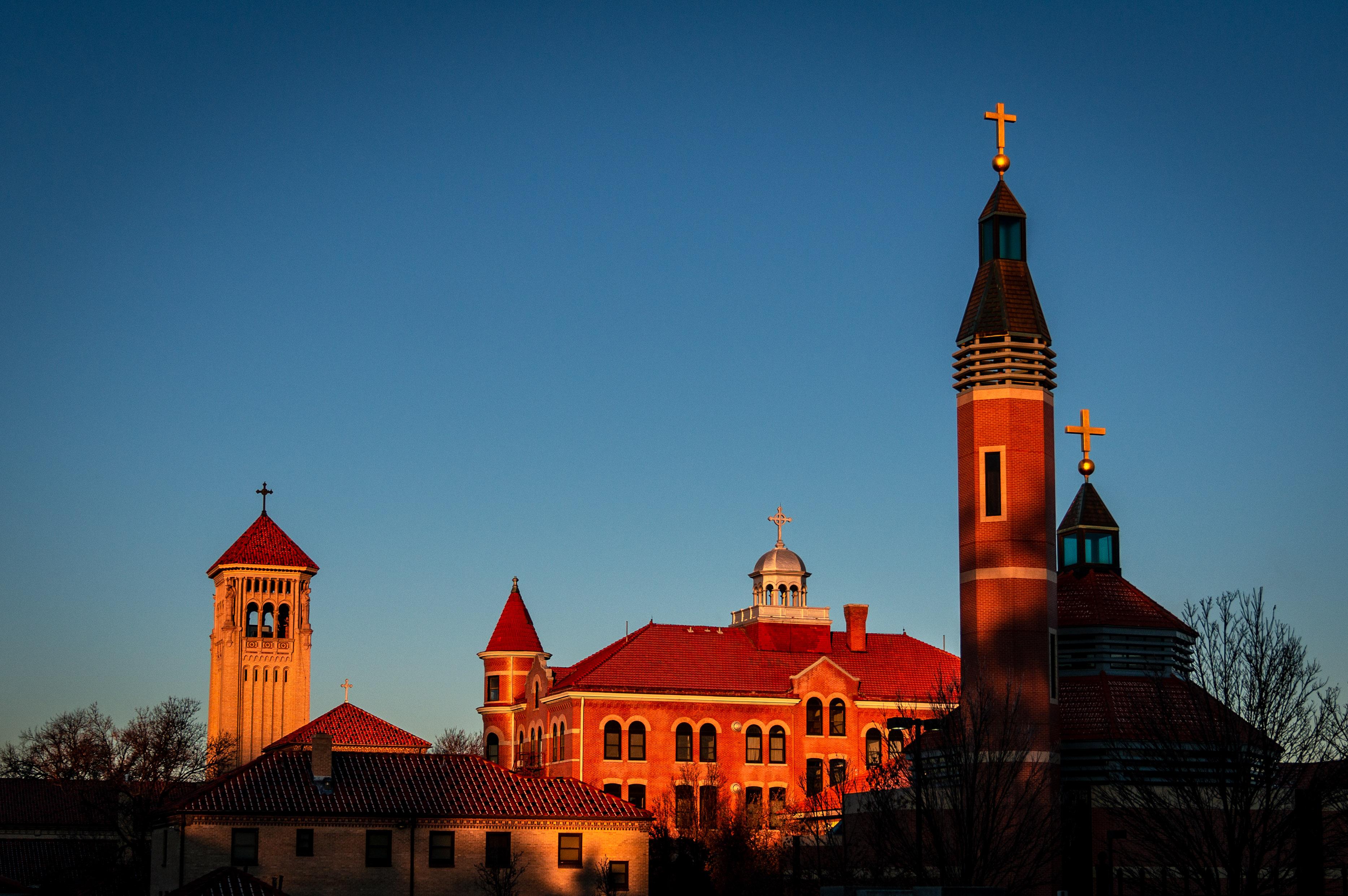
Faith leaders across Colorado are trying to find a balance between protecting the health of clergies and congregants and meeting their spiritual needs.
The COVID-19 pandemic has forced religious institutions to adapt in various ways, from asking for online donations to hosting drive-in services. And as parts of the state slowly reopen, houses of worship are preparing for their own new — and perhaps temporary — normal, despite not yet knowing when they can welcome the public again.
For now, Colorado still has a ban on gatherings of more than 10 people. That’s a big issue for spaces that sometimes have hundreds of people coming together.
Faith leaders have had weekly phone calls with Gov. Jared Polis for updates on the health crisis. That includes Rev. Amanda Henderson, executive director of the Interfaith Alliance of Colorado, who said faith leaders have a lot to consider right now.
“Obviously the health and well-being of their congregation and their communities is a big concern,” she said. “A lot of people are experiencing loneliness or fear or spiritual needs that they are used to addressing in their congregations, so I think there is a desire to be able to provide that service.”
Some are also dealing with the financial impacts of COVID-19. Some churches have had success moving donations online, but smaller and older churches that rely heavily on in-person donations are having a hard time, Henderson said.
“Faith communities do rely on people coming every week and giving donations and supporting the congregations,” she said. “A lot of congregations were struggling before COVID-19, and now this has added to the struggles.”
Henderson has been working with the governor’s office on clear guidance for congregations that takes into account health and safety concerns as well as ways to connect spiritually.
Many spiritual leaders appear to be erring on the side of caution and have said they will take their time to reopen. That means using a phased approach for some religious groups.
The Episcopal Church in Colorado has said it will welcome its 30,000 parishioners back in four “seasons.” The first season, which is staying at home, will last until at least the end of May.
The church won’t move into its next phase until state health data show a daily reduction in confirmed COVID-19 cases over 14 days, according to a letter to clergy from Bishop Kym Lucas. At that point, pastoral visits can resume for those who are not at high risk for the coronavirus. Smaller congregations may reopen too, but they must get approval from the Bishop’s Office.
“The government may say, ‘Yeah, it's fine to reopen,’ but we are going to be even more cautious than that,” said Canon Mike Orr, a spokesman for the Episcopal Church. “We are trying to be considerate of our most vulnerable population, and the average age in our churches is much higher than that of the general population. So we are going to take every precaution to protect those people.”
Orr said most people are grateful that the church isn’t rushing to reopen.
“We know how strong the desire is for us to be able to resume public Masses, and that some are getting frustrated as other areas of public life have remained open,” Denver’s Archdiocese said in a statement earlier this week. “As we approach this next phase, we want to prudently take steps forward and not rush anything that would cause us to take steps backward.”
The Archbishop said Masses could start again by May 9, but there are no guarantees. Catholic officials are working on a plan for in-person services that comply with the statewide “safer-at-home” order. The rules will also work for all parishes, no matter where in the state they’re located. Some counties, including Denver, have extended their local stay-at-home orders through May 8.
Even when larger gatherings can resume, things won’t immediately go back to normal, the Archdiocese said. Services will have attendance restrictions, social distancing and temporary changes to the liturgy like communion.
All houses of worship have had to adapt certain rituals and traditions because of COVID-19. And those changes have come around the time of some of the biggest religious holidays, including Easter, Passover and Ramadan.
Colorado Sikhs typically host a free community meal called Langar to anyone in need after every service. Since the pandemic began, they’ve expanded their service online and now offer all kinds of goods in addition to food. Seder dinners were hosted through Zoom this year during Passover. And for Easter, Faith Bible Chapel in Arvada and some other congregations held drive-in services with attendees in parked cars listening to the sermon through a transmitter. Other faith leaders have shared messages through social media.
“One of the things that I keep reminding our communities is that we’re resilient,” Henderson of the Interfaith Alliance said. Overall attendance is up for some faith groups thanks to online streaming, she added.
“Faith communities were changing before this. They were getting older. There was less attendance at regular services,” Henderson said. “I think that there will be innovation and resilience. And will it be different? Of course. Will it be hard? Yes. But I think that we’ll come through as we have so many other times before.”








